To keep your swimming pool clean and safe, it’s important to sanitize the water on a regular basis. Thoroughly sanitizing the pool will protect your family, while also extending your swimming pool’s lifespan, giving you better comfort and value. Safeguard your investment and the health of your loved ones by learning how to sanitize and clean your pool correctly.
So what should you do, and where should you start? We have the answers to help you get going. This simple guide to pool sanitation will teach you which products you can use in place of, or in addition to, chlorine and finally, how some common sanitization systems compare to one another. Whether your pool is vinyl, fiberglass or concrete, these tips will help you keep it clean and safe for maximum enjoyment.
How Do You Sanitize Your Pool Without Chlorine?
Chlorine is a trusted and proven pool sanitizer that has been widely used for more than a century. It is highly effective when used as directed, whether manually inserted (in tablet or stick form) into a simple feeder, or created as part of a salt-chlorine generator, which uses familiar, everyday salt to produce the appropriate amount of chlorine for your swimming pool.
Chlorine Alternatives for Sanitizing Your Pool
However, as science continues to advance, more and more chlorine alternatives for your pool are appearing on the consumer market. For example, ozone pool systems work by blending electricity with oxygen, which removes calcium, iron, and other metals from the water. Another popular chlorine alternative is a UV pool system, which uses ultraviolet light which is completely invisible to the human eye to fatally damage the DNA contained within viruses and parasites.
With this in mind, it’s important to understand that many chlorine alternatives ultimately require you to add chlorine separately in order to ensure thorough cleaning. For instance, if you use an ultraviolet light system or ozone system to sanitize your swimming pool, you will also need to add a certain amount of chlorine in order to ensure the destruction of harmful bacteria.
Chlorine Alternatives for Spas
Bromine – a close cousin of chlorine – is the sanitizer of choice for portable spas. The cost of bromine tends to be higher than chlorine, therefore it’s more frequently used by home owners for small scale use. Bromine is less harsh on skin and eyes than chlorine. Similar to chlorine, bromine is best dispensed in a flow through an auto-brominating device
Natural Alternatives to Pool Chlorine
The best way to naturally keep your pool sanitized is to reduce the amount of oils or bacteria that enter your pool by showering before swimming. One way to sanitize your pool without adding chemicals is to create your own chlorine with a salt water generator. In addition, there are several ecologically-friendly products on the market that could work well with your pool. Make sure to consult a local Latham Independent Builder before making any drastic changes to how you treat your pool.
No matter how you choose to sanitize your pool, keeping your water balanced and your pool free from dirt and debris will reduce the amount of sanitizer used.
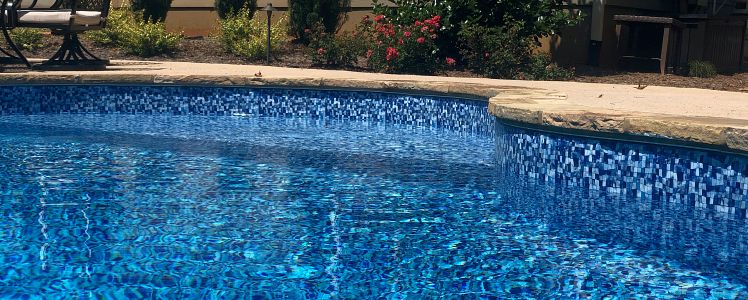
Vinyl Liner Pool | Custom in Disco Pearl
What is the Best Sanitizing System for a Swimming Pool?
When it comes to choosing a pool cleaning system, there’s certainly no shortage of options! While chlorine-based systems are the most popular, technological advancements have brought a wider range of chlorine alternative choices to today’s swimming pool owners. Here are just a few common examples of different pool sanitization systems that are available for residential use:
- Bromine sanitization systems
- Ozone purification systems (ozone generators)
- Pool ionizer systems
- Salt water systems (salt based chlorine generators)
- UV light sanitation systems (ultraviolet light sanitation systems)
So, which of these options is best for your pool? The answer depends on the value you place on factors like cost, convenience and efficiency. For example, bromine generally has a milder scent and longer life than chlorine, but also costs more and tends to break down in sunlight more easily.
Whether you’re using a chlorine based sanitizer or a chlorine alternative, consult with an experienced pool expert to make sure you choose the right system for your budget, pool type, climate and lifestyle. Your local Latham Independent Builder can help you compare the benefits and drawbacks of each system in comprehensive detail so that you can make an informed decision about how to keep your swimming pool clean and sanitized.
Clean and Sanitize Your Pool so You Can Enjoy it for Years to Come
We get it. You’re eager to wrap up the cleaning, balancing and sanitizing and get to the swimming. Just remember, it’s important to be thorough and complete the process carefully, or you’ll simply have to redo the job sooner — and at the end of the day, that means less pool time!

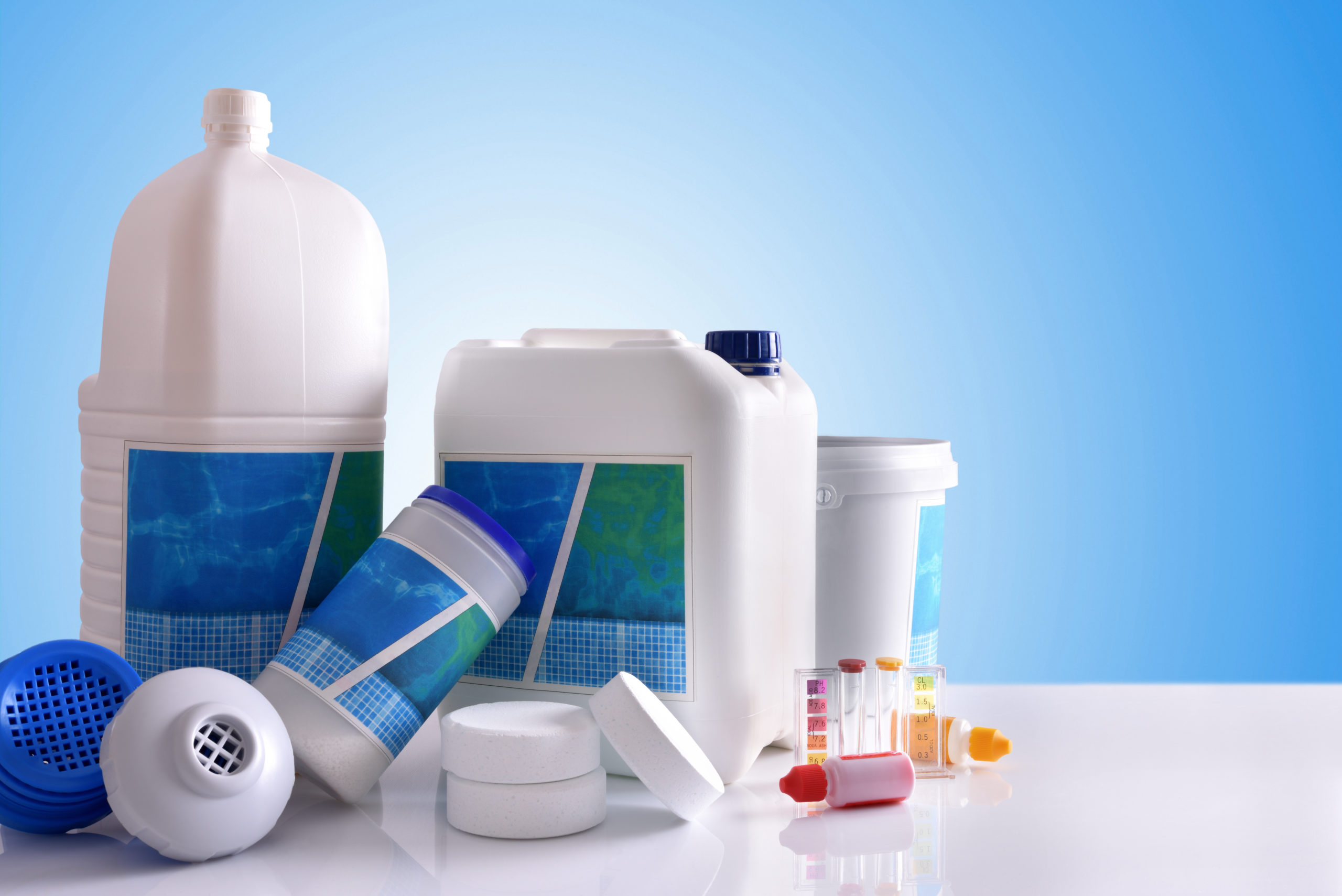

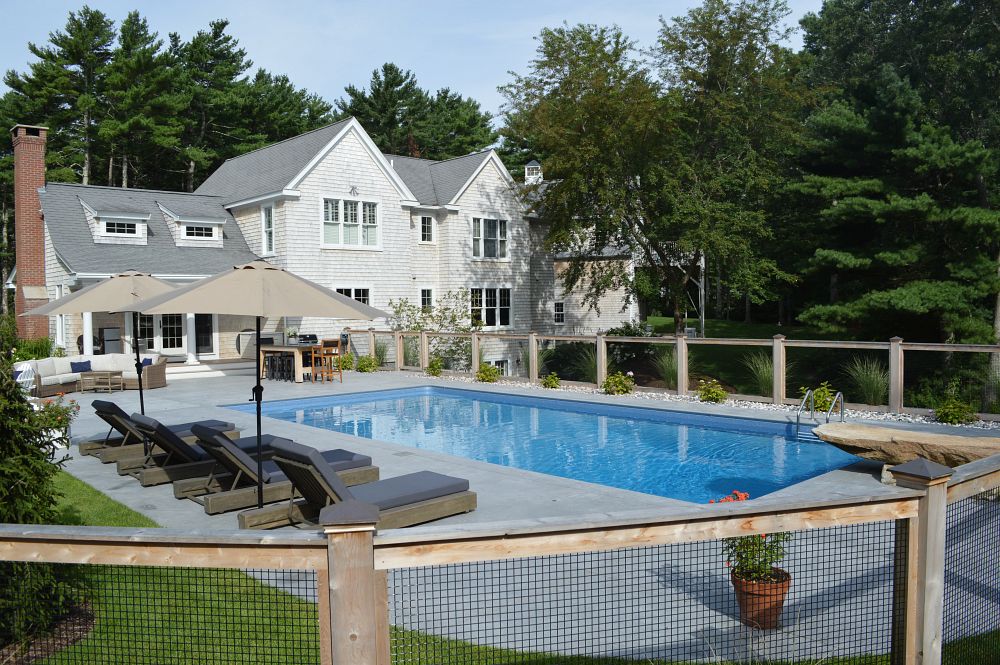
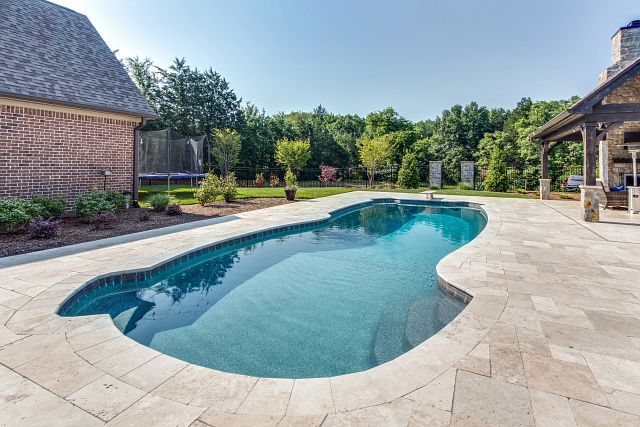
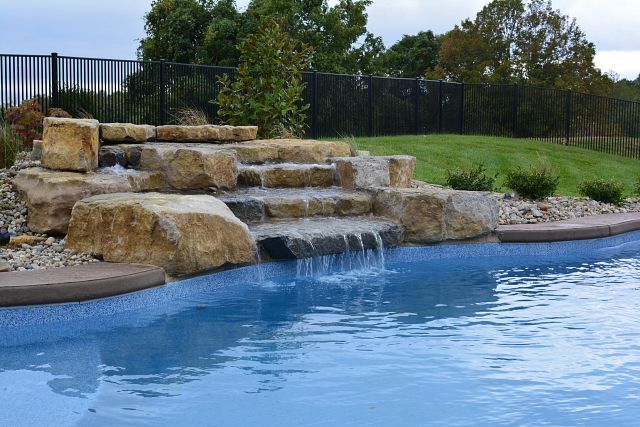
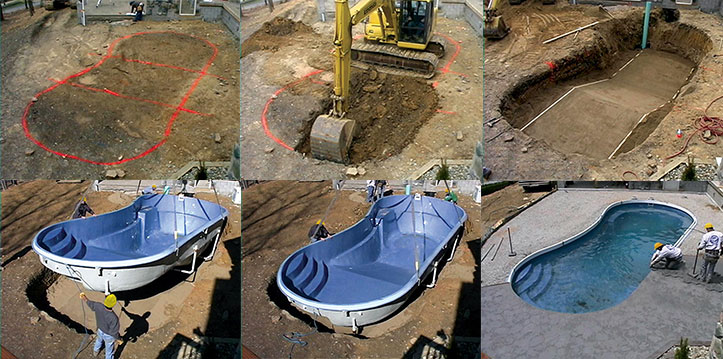
Join the discussion